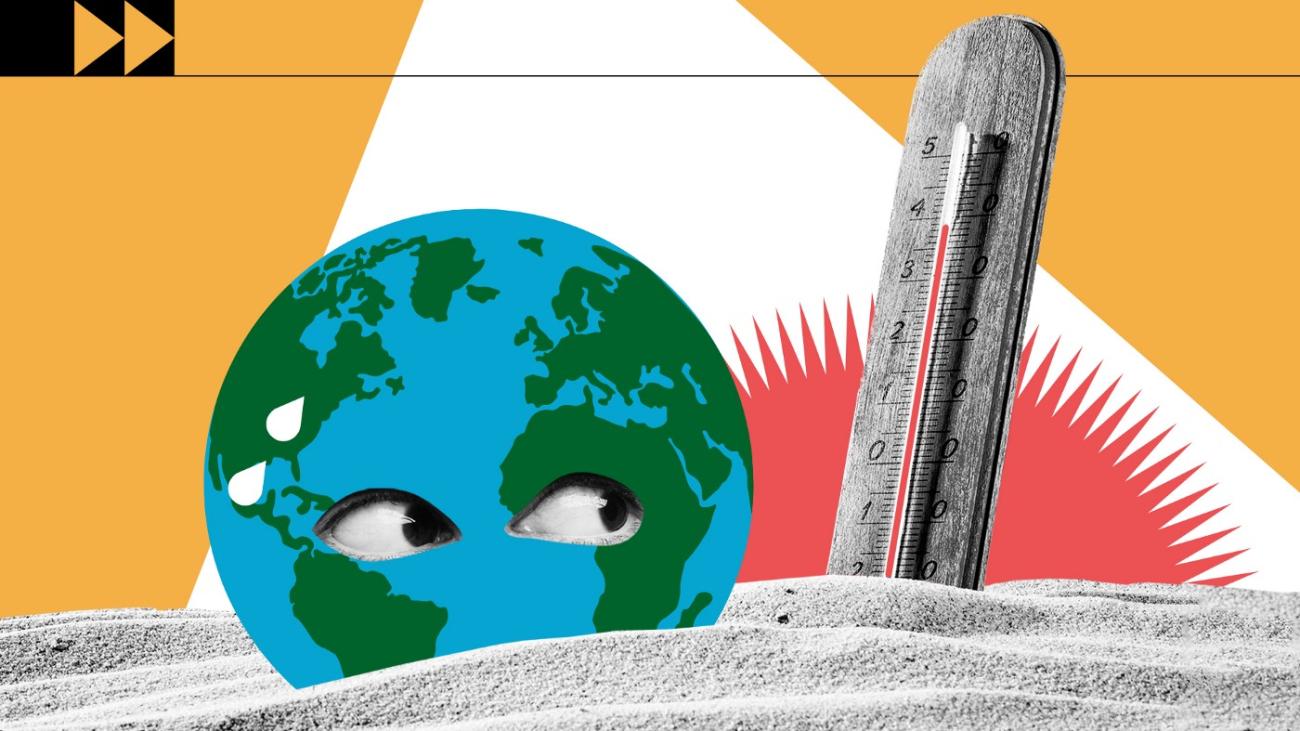Rampant climate disinformation online is distorting dangers, delaying climate action

Renewable energy is a clear target of these campaigns which seek, to muddy the waters, undermine consensus and sow division.
Time is slipping away from us. There is no doubt the world must act now to avoid catastrophic ecological collapse. But climate action is being undermined by bad actors seeking to deflect, distract, and deny efforts to save the planet. Disinformation, spread via social media, is their weapon of choice.
Recent floods, droughts, wildfires and heat waves have made it harder deny the existence of climate change outright. So peddlers of climate disinformation have turned to other methods to delay efforts to decarbonize the global economy. And their tactics are growing increasingly sophisticated.
One recent example saw several climate scientists say they were tricked into taking part in online conferences hosted by a group that denies human activity is to blame for climate change. Offering “the truth,” the group describes the climate crisis as the “CO2 fraud” and the “scam of the century.”
The group, which reportedly has links to conspiracists, engages high-profile speakers to address its events. Some guests later told the BBC their words had been manipulated, taken out of context, or that they hadn’t been made aware of the group’s views. The organization denies any wrongdoing.
These underhand tactics are by no means unique. Those with a vested interest in keeping us hooked on fossil fuels are spending huge sums on think tanks and influencer campaigns to sow doubt about climate science, spreading everything from distorted stories to conspiracy theories and outright lies.
Analysis by our partner, First Draft News, shows that climate disinformation is being shared widely on a range of platforms. From vicious attacks on activists, to divisive content intended to confuse and deflect attention, campaigns all seek the same outcome: a deadly delay in climate action.
Much of this content comes from just a few sources. A recent report by non-profit Center for Countering Digital Hate found that 10 publishers are behind 69% of all climate change denial content on Facebook. Ad revenue, the report added, even makes these lies a lucrative outlet for these firms.
Renewable energy is a clear target of these campaigns, which seek to muddy the water, undermine consensus, and sow division. Similar tactics were pursued by big tobacco while suppressing findings which linked smoking and cancer. The internet has only supercharged their reach.
And the fossil fuel lobby is using every trick in the book. A 2021 report found that bots deployed on social media were generating and amplifying lies, automatically joining and dominating online conversations. The content is then shared by users unaware they are spreading misinformation.
Recent studies show these tactics work. The latest UN IPCC report was the first ever to call out climate disinformation, stating that a “deliberate undermining of science” was contributing to “misperceptions of the scientific consensus, uncertainty, disregarded risk and urgency, and dissent.”
And all the while, time is running out. The science is crystal clear: the world must cut global emissions by 45 percent this decade to keep the 1.5°C limit agreed in Paris within grasp. We need everyone on board if we’re going to make it. That’s why climate disinformation is so dangerous.
We know there are no silver bullets to tackle this. We must do better at holding those intentionally spreading harmful lies to account, and push for better enforcement of Google, YouTube and Meta and Twitter’s pledges to ban or flag climate disinformation. But taking down lies is only half the battle.
Our focus must equally be on raising awareness. My team and I at the United Nations have been working with social impact agency Purpose on ways to fight back against disinformation, encourage conscious sharing, and flood feeds with reliable, accurate information in shareable nuggets.
Communicators can help audiences spot false content and the tell-tale signs of disinformation. Every person with the skills to call out fake experts, conspiracies, and massaged facts is one fewer to fall for the old tactics of deflect, distract, and deny. One thing is clear. There can be no more delay.
By Melissa Fleming, Under-Secretary-General, Department of Global Communications (DGC)









